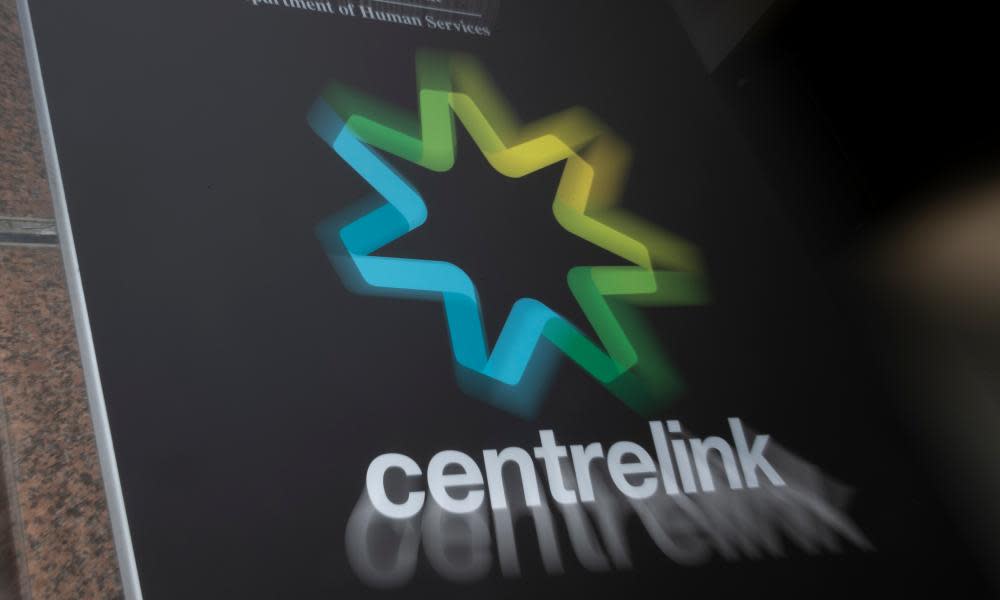Officials given chance to ‘effectively co-write’ report into department’s handling of robodebt, inquiry told

Government officials believed they were given the opportunity to “effectively co-write” a federal watchdog’s report into the robodebt scheme, a royal commission into the scheme has been told.
The commonwealth ombudsman was investigating the Centrelink debt recovery program at the height of the robodebt scandal in early 2017. Its final report failed to raise any concern about the unlawfulness of the program.
Related: ‘You are being misled’: the Centrelink worker who tried to stop robodebt as it started
On Monday, the robodebt royal commission saw emails showing a commonwealth ombudsman’s official had written to the Department of Human Services in January 2017 asking for “initial comments, points of clarification or feedback” on a draft of its investigation report.
In response to that email from the ombudsman’s staff, a Department of Human Services official wrote to colleagues saying the department had “been given a great opportunity to effectively co-write the report with the ombudsman’s office”.
“Given the time pressure the OO [ombudsman’s office] is under, any suggested wording you provide in response to their dot points will enable them to do a quick copy and paste in many instances where there is general agreement or at least not totally opposing views,” the January 2017 email said.
Jason McNamara, a former general manager at DHS – now Services Australia – did not write that email but was involved in the department’s response to the ombudsman.
Under questioning from counsel assisting, Angus Scott KC, McNamara said it was “useful” for the department if it could “influence his [the ombudsman’s] language to be more like ours”.
“It’s not essential but it’s useful, if we can achieve it, it’s great,” McNamara said.
He said it was “fairly normal practice” for the watchdog to seek feedback from the department in this way.
McNamara added: “At the end of the day, the ombudsman is signing off on the report. If he’s not happy … he’s going to say ‘No.’”
The royal commission was shown a marked-up version of the executive summary of the report.
DHS proposed removing phrases such as “inaccurate debts” and suggested changing “better” decision to “new” decision in reference to debts no longer relying on the flawed “income averaging” method. That method turned out to be unlawful, ending in a $1.8bn settlement with hundreds of thousands of victims.
The published version of the report does not include the phrase “inaccurate debts”, along with other phrases DHS objected to. But other suggestions – including attempts from DHS to rewrite a number of recommendations – were seemingly rejected by the ombudsman.
After the ombudsman’s office received the department’s proposed changes, it wrote again to DHS, attaching a newer version of the report and offering a further opportunity for to provide feedback.
This prompted a DHS official to remark in an email: “Hot off the press and unexpected, a final bite of the cherry.”
McNamara said the robodebt program was in “crisis” when he was appointed to a role in which he handled media inquiries, parliamentary and watchdogs’ investigations and liaised with then human services minister, Alan Tudge, and his staff.
The commission was later shown a cover letter McNamara had submitted for the position of deputy secretary of the Treasury department in which he talked up his role dealing with the robodebt issue, including that he had “shaped the ombudsman’s report”.
“What you’re trying to address is to be able to say I was able to influence [an] independent decision-maker,” he said. “The ombudsman, the auditor-general, doesn’t necessarily take feedback. I’m trying to say I was able to successfully influence them.”
McNamara said of the ombudsman: “They were the only people out there that wasn’t giving us an extremely difficult unreasonable time.”
The ombudsman’s April 2017 report was a major blow for critics of the robodebt scheme. It made some criticisms of the robodebt scheme’s processes but generally found that its aims and approach were appropriate.
The royal commission heard the then human services minister, Alan Tudge, and the department often referred to the watchdog’s report to defend the scheme.
McNamara said it was a “tactic used in very difficult environment to respond”.
The government services minister, Bill Shorten, said the royal commission was hearing “firsthand about a toxic culture” that he blamed on the former Liberal government.
Related: Robodebt: a conspiracy or a stuff up?
The ombudsman has told Guardian Australia it cannot be compelled to give evidence at the royal commission. It said it is “and has always been, willing to consider what assistance he can provide to the royal commission voluntarily”.
The ombudsman’s office said in a statement: “The ombudsman is required by subsections 8(5)and 35A(3) of the Ombudsman Act 1976 to provide procedural fairness to an agency before it publishes a report critical of the agency.
“The office of the commonwealth ombudsman does this by providing draft investigation reports to agencies, for them to make comments and submissions on to the office.
“The office of the commonwealth ombudsman is a statutorily independent office and the form of a published report is a matter for the ombudsman to decide.”
The inquiry heard confirmation that former prime minister Scott Morrison will take the stand next Wednesday. The former human services minister Marise Payne will also appear next week, on Tuesday.
Senior counsel assisting, Justin Greggery KC, confirmed other former ministers would be called at a later hearing.
The royal commission continues.

 Yahoo Movies
Yahoo Movies 
